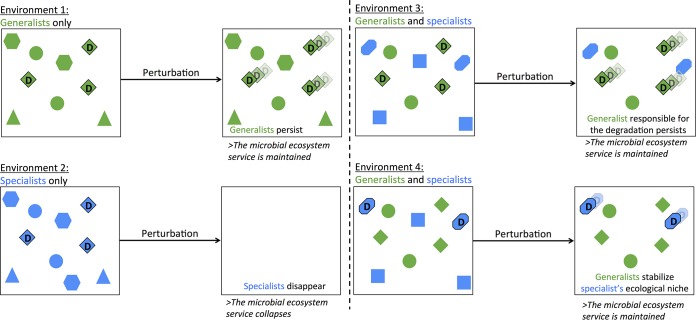FIG 2.
Potential effects of microbial niche breadth distribution on ecosystem service stability in the face of perturbations. We hypothesize that within endogenous microbial populations, generalists (green) with a large niche breadth and wide metabolic amplitude and specialists (blue) with a narrow niche breadth and restricted metabolic flexibility will affect the stability of ecosystem services (here, for example, the degradation of a pollutant) in different ways. Following perturbation, a community made up of only generalists (environment 1) will persist; the population(s) of the organism(s) responsible for this function (depicted with a “D” for degradation) might even expand (duplicated, shaded symbols) if the pollutant serves as a carbon or energy source, and ecosystem services will be maintained. For a community composed of only specialists (environment 2), the ecosystem service will disappear with the collapse of the population performing the degradation function. In more realistic environments, inhabited by both generalists and specialists, ecosystem services are predicted to be maintained if the related function is carried by generalists (environment 3), which is similar to the situation in environment 1. In environment 4, where the degradation function is carried by a specialist population, the studied ecosystem services may disappear following perturbation, or persist if associated generalists stabilize the ecological niche of the specialist, or take over the relevant function by horizontal gene transfer, leading to a situation similar to that in environment 1.

